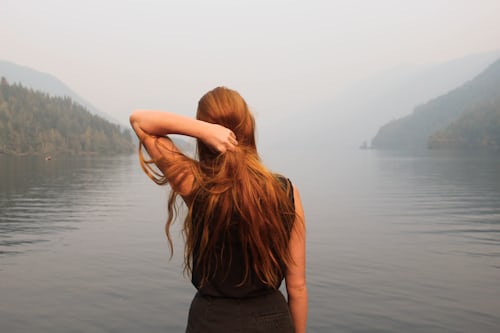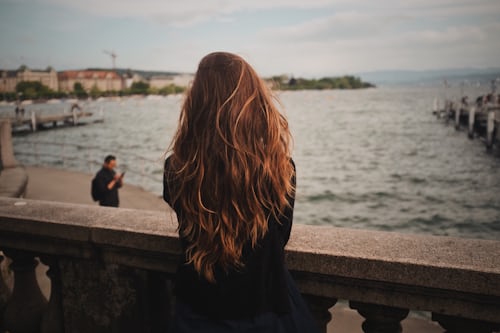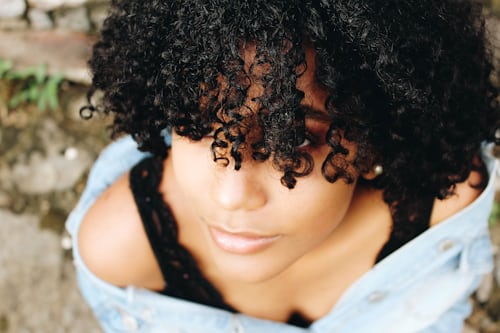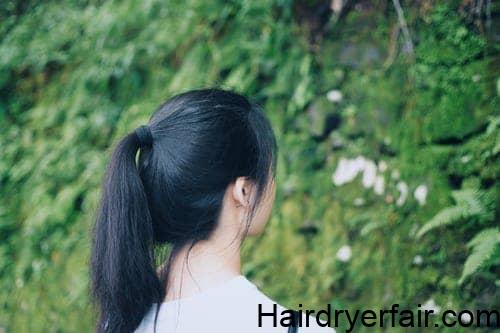Recurrently oily hair can cause many men and women frustration. But don’t be afraid, as there are several ways to remedy it to have less impact on your life. While gray hair may sometimes appear neglected, it is nothing but a poorly managed beauty regime or natural process. Regardless of what causes your oily hair problem, we have several tips, tricks, and recommendations to ensure you feel great. Do you ask yourself, why does my hair get greasy after a day? Find out the answers here!
Why Does My Hair Get Greasy After A Day?

The oil inside your hair is part of the body’s hair defense system for your sensitive scalp, which mixes with dirt and sweat and sometimes coats your scalp and sometimes the head of your head.
Practicing good hair hygiene frequently and well washing your scalp with a shampoo clears oil and gives a new start to your hair.
But some hair types are susceptible to oil growth. Oil can build to visible levels over less than 24 hours. Sometimes intense workouts, overuse of hair products, or excessive moisture or heat can trigger an oily day for hair. Here’s the answer to your question; why does my hair get greasy after a day?
Natural Reasons
Excess oily hair may result from age, hormones, and genetics. Sebum production is increasing during adolescence. People may also produce excess sebum due to certain types of hormones (androgens).
Your Current Grooming Method
The use of an abundance of hair products like padding, hairspray, and mousse for a long time can build up and cause additional oil without cleaning properly. While we can not modify aspects such as genetics, we can healthily reduce excess oil.
Overwashing Your Hair
A somewhat unexpected cause of oily hair is washing over. It’s right that your hair can be washed too often. It sends the signals to the scalp every time you wash your hair with shampoo to produce more sebum. If your hair is washed too often, your scalp’s message is that it has to get oily buildup scalp.
Hair Type
Straight hair is especially prone to collecting oil. It is because the hair shaft does not have a texture or a wave to it, so oil slides down the hair shaft directly and collects all over your head.
Products
Sebum is one type of oil that makes it not easy to wash with water. Rinsing your hair with just water, skipping the shampoo step, and using only a conditioner, may allow the oil to build up. Although it might not be easy to spot oil when your hair dries, it will appear oily again a few hours or later.
Ways To Prevent Greasy Hair

Now that you know “why does my hair get greasy after a day”, here are some ways to stop hair from getting too quickly greasy.
1. Don’t shampoo every day.
Your hair might start to rebel after reading this, but it is not good to wash your hair every day, even though you have super oily hair.
When you wash your hair every day, you stripe your scalp and hair with all the natural oils and nutrients, which may break down, make hair look dull, and make your scalp dry and flaky in general.
Furthermore, the more you wash your hair, the more your scalp generates oil over it, because it strips the natural oils. This is some sort of vicious cycle, so only by making your daily break is to break it.
So if you wash your hair every day, take it every other day, and try cleaning every two-three days if you do that already.
2. Keep your hands from touching your hair.
It’s not a good idea to touch your hair again and again. You’ll make it oily as more of your hair is in touch with your hands, the scalp produces more oil. So when your hands start to reach your hair, remember it’s not a tool to play. Get this squeezing ball to keep your hands busy and save your hair.
If you have bangs, make sure you pin them to the side and cut them off to a length that doesn’t block your eyes. Otherwise, you’ll finally push them all day long. One idea does not have a margin. They always get greasy quickly.
3. Wash your hair in the opposite direction.
Another secret to stopping your hair from getting too quickly oily is to wash your hair. What this means is that you first apply the conditioner than shampoo.
For your hair to still get all the moisturizing benefits of using the conditioner, it doesn’t leave you with that greasy, weighted appearance. Just for your information, good fatty hair conditioning oils: cocoa, argan, olive, jojoba oil, grapefruit, and almond oil.
4. Rinse your hair with herbal products.
Skip the shampoo and use your hair rinse to refresh your hair. Also, if you are wearing the right herbs, they will keep oil production under control, add luster, bounce, and body to your hair.
Make a herbal rinse for your hair: simply place 1-2 teaspoons of the herb in a pot or jug and pour it over the water with hot water.
Put the herbal infusion on your hair. Work in your skin and hair and keep for 3 to 5 minutes, then rinse off with cold water to keep it bright.
5. Use Dry Shampoo.
Dry shampoo is a great way to take up the extra oils and make your hair smell fresh and clean, but don’t stop it, because it will obstruct your scalp pores.
6. Every week, change your pillow cover.
If your pillow is oily and dirty, it will transfer your grated hair back. And, if you have any, it will also worsen facial acne. I suggest you use natural detergents to wash your washing as harsh soaps can irritate your skin and stimulate excess oils.
7. Keep the water temperature low.
Using hot water, you wash off the natural protective oils of the hair and the skin and make it dry. And it sends a signal in your oil-producing glans to produce more oil, so your hair will be a smooth ball in a matter of hours. Then, ‘always’ use warm water to wash your hair.
8. Try various hairstyles.
You can easily make your fatty hair look cool with different hairstyles. In addition, gray hair holds styles better than freshly washed locks.
You can wear a messy bun or wear a tanned bun. Here is a nice video of how you can build easy and sweet hairstyles with oily hair.
9. Cut down heat styling.
Limit your hot tool use — even your blow dryer, because hot air stimulates oil production faster. If your hair has to dry, make your hair cooler.
The use of heat often damages your hair’s protein and causes a rupture and a splitting of the ends. That’s why you should not straighten or curl your hair on a daily basis.
Tips For Styling

In order to prevent oily hair from becoming more problematic as the day progresses, you will be able to manage certain types of hair cuts and styles. Excessive contact with your hands and the immediate environment not only contributes to an oil buildup on the scalp but encourages it to spread the strands.
Refrain from brushing as this is the only way to dispense the sebum from the roots throughout your hair. Use a wide-tooth comb to remove knots. Avoid any sticky styling products, such as mousse, hairspray, and wax. Wear your hair on top to look chic while reluctant to play.
Important Lifestyle Tips
Sometimes changing your care can reduce your hair oil. Here are a few lifestyle tips that can contribute to your hair’s oil content.
Skip brushing between showering.
Whenever your hair is brushed, you pull sebum and sweat from your scalp down into your hair cuticle. When you distribute oil all over your hair, your scalp generates more.
Lay the straightener off.
Like brushing your hair, straightening your hair moves oil throughout your hair cuticles. Hair straighteners and other hot hair tools also use heat close to the hair root, which can trigger your sweat glands.
Change your pillowcase.
Please remember to wash your pillowcases often. It’s a good rule for your thumb once a week. Alternatively, you lying in the oil and sweat accumulates your hair from the past, every time you go to bed, you can wake up with the pure slate by making sure your coatings are as smooth as possible.
FAQ
Why does my hair get oily after one day?
It is often the case that people do not wash their hair enough. If you are only washing your hair every few days, this can cause it to produce too much oil which leads to build-up. If you are washing your hair every day, then it is likely that your scalp may produce too much oil.
Final Words
Why does my hair get greasy after a day? Sebum production from scalp glands is a natural hair-conserving process. However, it can be very frustrating if our glands produce more than we wish. The result of genetics, age, hormones, and hygiene habits can be greasy hair. Anyway, remedies such as clear shampoos, dry shampoos, and homemade lemon rinses can help decrease the fat.
There is plenty of home remedies, hair care, and beauty swaps that you can do to reduce how oily your hair is. The chances are that, even if you feel like you’ve tried everything, there’s a trick or two, which you don’t know.
Remember, oil is part of how your body protects your scalp, and there’s nothing dirty or wrong with a little oil buildup hair. Say a dermatologist for some expert advice if you worry about how much you sweat or if your scalp is often irritated.

